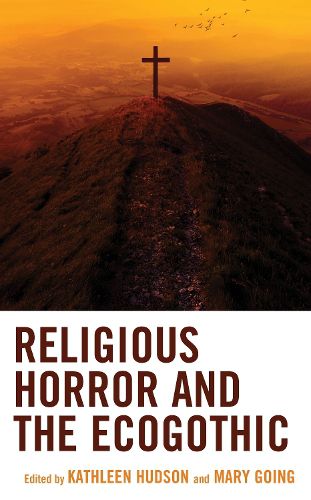Readings Newsletter
Become a Readings Member to make your shopping experience even easier.
Sign in or sign up for free!
You’re not far away from qualifying for FREE standard shipping within Australia
You’ve qualified for FREE standard shipping within Australia
The cart is loading…






Religious Horror and the Ecogothic explores the intersections of Anglophone Christianity and the Ecogothic, the category of Gothic literature that explores the ecocritical in Gothic literature, film, and media. Acknowledging the impact of key Christian ideologies and aesthetics upon interpretations of human relationships with the environment, works in the Ecogothic subgenre interrogate spiritual identity, unease, awe, and humanity's darker impulses in relation to myriad ecological systems. Through an extensive survey of Ecogothic texts from the eighteenth century to the present day this book illuminates the ways in which a Christianized understanding of hierarchy, dominion, fear, sublimity, and other critical areas of the human experience shapes reactions to the environment and conceptions of humanity's place in it, from Eden to Armageddon. It interrogates the evolving discourses which inform current environmental policy, as well as, more fundamentally, definitions of the 'human' in a rapidly changing world.
$9.00 standard shipping within Australia
FREE standard shipping within Australia for orders over $100.00
Express & International shipping calculated at checkout
Religious Horror and the Ecogothic explores the intersections of Anglophone Christianity and the Ecogothic, the category of Gothic literature that explores the ecocritical in Gothic literature, film, and media. Acknowledging the impact of key Christian ideologies and aesthetics upon interpretations of human relationships with the environment, works in the Ecogothic subgenre interrogate spiritual identity, unease, awe, and humanity's darker impulses in relation to myriad ecological systems. Through an extensive survey of Ecogothic texts from the eighteenth century to the present day this book illuminates the ways in which a Christianized understanding of hierarchy, dominion, fear, sublimity, and other critical areas of the human experience shapes reactions to the environment and conceptions of humanity's place in it, from Eden to Armageddon. It interrogates the evolving discourses which inform current environmental policy, as well as, more fundamentally, definitions of the 'human' in a rapidly changing world.